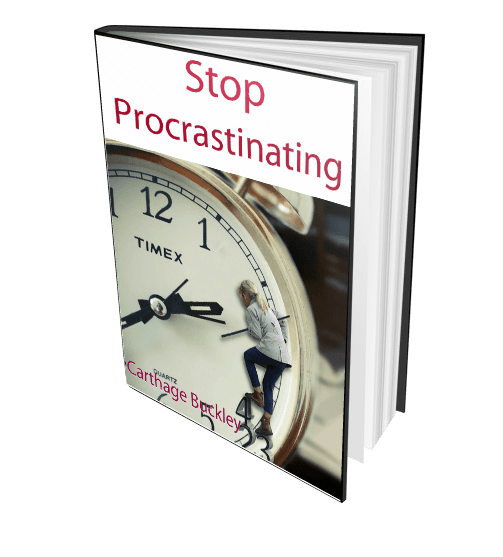When you are planning on making some improvements in your life, you will usually spend a little time thinking about how you will benefit from taking the positive, focused action required to make the improvements. This can provide great motivation but often it isn’t enough to provide the level of motivation required. And so, you sit back and do nothing. It is easy to forget that understanding the costs of inaction is just as important as understanding the benefits of action. Make no mistake, inaction comes with costs. If you are not getting the results you want in life, you are just as responsible for your inaction as you are for the actions you take.
Some of the obvious areas where inaction will cost you dearly are:
When I talk to my coaching clients about why they have not created the life they really want; it is more often due to their failure to take action than taking the wrong actions. There is an obvious reason for this; when you take action, even the wrong action, you get feedback which quickly lets you know if you are on the right course or not. You can then identify any adjustments you may need to make. If you don’t take action, you can’t get that feedback.
To learn more about the importance of taking action, check out my article - 3 Major benefits when you take action.
Discover the 9 most common reasons that people procrastinate; with my FREE Report.
8 Costs of inaction
I really want to hammer home the fact that inaction comes with great costs. The following examples are common areas where inaction can cause problems in your life.
1. You don’t save

We all know of the value of compound interest. When you start to save early, your money attracts interest, no matter how little, and the interest helps to grow your savings even further. It is like having a friend throw a little extra into your account from time to time. The earlier you start saving, the more interest you get over your life time.
If you start saving 10% of your income in a savings account with a good interest rate from the day you start working; you will have enough money for retirement when that time comes. But you don’t do it and when retirement comes around, you hope that your pension is enough to get by. Or, you realise late in your career that you need to put some money aside for retirement and that puts a lot of pressure on you.
It really isn’t difficult to save 10% of your income each month, especially if you set it aside as soon as you get paid. I currently save 30% of my income each week to try and make up for the fact that I started late. When I set it aside straight away, I find that I spend less money on things that I don’t need each week.
For example, I was previously spending €40 per week on takeaway coffee. I now buy a €5 jar of good coffee each week and enjoy a travel mug (stays warmer for longer) full of coffee at my desk each day. That’s €35 for my savings.
Stop procrastinating
If you need to overcome inaction and procrastination, check out 'Stop Procrastinating'.
2. You don't apply for the job

I was recently talking to a friend about his career. He told me that he had seen an interesting job which he had considered applying for. He then decided that he wasn’t going to apply because he didn’t think the finer details of the job suited him. The problem was that he was assuming what the finer details were as not all the details were provided in the job advert.
I was surprised. He was missing out on a potential opportunity because of assumptions. After chatting for a while, he decided that he would put an application in. If he is called for interview, he will find out more about the job then. Even if he is offered the job, he wouldn’t be obliged to take the job.
There is the potential for increased pay and less hours, if he gets offered the job and if the job suits him. If it doesn’t work out, he will have worked on his job application skills and maybe gained some extra interview experience.
3. You don't resolve that conflict

If you are having a conflict with somebody, you need to resolve it at the first opportunity. Most conflict starts out small, over a relatively minor issue. Unfortunately, the offended party doesn’t speak up and state that there is a problem. If the offending party does not realise that there is a problem, they can’t resolve it. They may even repeat the offensive behaviour and make matters worse.
Of course, the person who caused the offense (intentionally or not) may realise that there is a problem but not know why. They may be afraid to ask and so the problem escalates. Somebody needs to be the bigger person, take control and speak up to bring the conflict to a resolution. Once the issue is brought into the open, it is usually easy to resolve; especially if the issue is addressed swiftly.
If you are wondering which person should take charge and resolve the issue; the answer is simple – You! Whether you are the offending party or the offended party is unimportant. If you are a party to the conflict; avoid inaction. Take charge and be responsible for resolving the issue.
Bonus:
Talk to the right person
4. You don't start the improvement

If you are obese, you are not going to become a finely tuned athlete overnight. If you struggle with public speaking, you are not going to be world’s greatest communicator this time tomorrow. I could provide more examples but you get the point. Despite what some marketers would have you believe; dramatic change does not happen rapidly. It usually takes some time. But that doesn’t matter.
When you set out to make some major changes in your life, it certainly helps to be able to picture your end goal. But constantly focusing on your end goal can lead to inaction. It can have you believing that you can’t achieve the end goal because it is so far away from where you are now.
It is better to focus on taking one step at a time to reach that end goal. What matters is what you can do today to be a little bit better tomorrow. Small incremental improvements are the key to achieving most big goals. Sure, there are some rare cases where people become an overnight success. In most of those cases, they disappear overnight too because they are not prepared for the success.
Inaction is a results killer. Small daily actions will get you where you need to go.
Bonus:
Productivity through small positive actions.
5. You don't do the work

You may view each project as a standalone project. If you do, you are wrong. When you work on a project, the project itself may not lead to another project but the knowledge and skills you gain will be of use in other projects. Even where you don’t learn new skills, you practice and improve your current skills.
Simply put, each project is an opportunity to improve yourself. You become more skilled and in many cases, more specialised. As you improve yourself, you get the opportunity to impress others by demonstrating your values. As you improve, your value improves and new opportunities become available. Whether you are an employee or self-employed, each piece of work you do will help you improve and it will increase your value to others.
People rewards those who provide the most value to them so view each piece of work as an opportunity to advance both yourself and your career. Lose the inaction and get the work done.
Inaction is worse than taking the wrong action
6. You don't ask for the sale

Ask most entrepreneurs what they least like about being self-employed and they will probably tell you that they don’t like asking for the sale. It can be difficult at first and it certainly feels awkward but you won’t be long in business if you don’t ask. So, most of us eventually learn to do it.
When reading ‘The Success Principles’ by Jack Canfield, I learned that Herbert True, a marketing specialist at Notre Dame University, found that:
However, 60% of all sales are made after the fourth call. This means that 94% of all salespeople don’t even give themselves a chance with 60% of prospective buyers.
That should demonstrate the damage that inaction can cause. Even if sales is not part of your job, you can see how this would translate to other areas of your life. If you really want something, you must be prepared to ask more than once. Mix up the ways you ask but don’t be afraid to ask again.
7. You don't ask the girl/boy out

If you have ever been in a happy, intimate relationship; you will know the great joy it can bring to your life. You have someone with shared interests and values whom you can bounce off. You can share the highs, and the lows don’t seem so painful because you have somebody who really cares and is willing to support you through the tough times.
If you are already in that happy relationship, you just need to be appreciative of what you have. If you are not in that relationship but there is somebody that you would like to have a relationship with, then one of you has to make the move. It may as well be you. There is so much you could gain by shedding the inaction, plucking up the courage and asking. You are probably afraid that they will say No. Maybe they will but that is not something to be afraid of.
I am not really an old romantic so I am going to highlight the other benefit of asking the person you like out. If they say No, your chances of finding the right person for you increase. Why? Because now that you know that person is not interested, you can stop looking down that dead end. You may be upset for a little while but you will get over it and you will soon be emotionally available for someone who is more suited to you. The No is just one step closer to the right Yes.
If you don’t ask, you are living in a state of uncertainty. That is a major waste of time. If they are interested in a relationship, you are delaying that relationship, thus delaying some additional happiness. If they are not interested, you are wasting time thinking about something that will never happen. Either way, stop wasting time, ask them and know for certain. Don’t let inaction get you.
Discover the 9 most common reasons that people procrastinate; with my FREE Report.
8. You don't visit your GP

Many people, especially us men, postpone going to our doctor until the very last minute. At worst, this can be extremely costly. You may miss the early signs of a serious illness, meaning that it becomes more difficult to beat the illness or in extreme cases, impossible to beat it. Even with less serious illnesses, it is usually possible to spare yourself some pain by getting the right medical treatment at the earliest opportunity.
I am not talking about visiting your GP every time that you sneeze but if you have been feeling unwell for a few days, it may be worthwhile making an appointment. You could be nipping something more serious in the bud or, you might just be setting your mind at ease. Your GP would rather see you a little too frequently than see you too late.
Stop Procrastinating
Inaction and procrastination come with a heavy price. If you are overcome by inaction and struggling with procrastination, check out 'Stop Procrastinating'.

Conclusion
When you think about improving your life, you probably think about all the action you need to take and how that action will benefit you. This can be very motivational but it is also worth taking the time to consider the other side of that coin. What if you don’t take the action? How will it cost you and how much will it cost? We are motivated by both pleasure and pain. Just as we can use the prospect of greater happiness to propel us, we can also use the pain of missing out to inspire us. Inaction is costly but it is something we often overlook. If there is something which you have been struggling to do, take some time to work out what the inaction is costing. You will see how you become more motivated to act.
